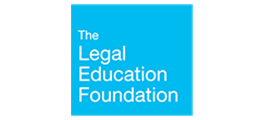The Children’s Society was represented by solicitors at Islington Law Centre and MiCLU (led by Roopa Tanna), and Counsel Paul Bowen QC and Oliver Jones (Brick Court Chambers), Michelle Knorr and Zoe Harper (Doughty Street Chambers) and Alison Pickup (then of Doughty Street Chambers, now at the Public Law Project) during the life of the case.
The Legal Aid, Sentencing and Punishment of Offenders Act 2012 [‘LASPO’] was responsible for preventing access to justice for hundreds of thousands of people requiring advice in relation to civil matters. In terms of immigration, particular concerns were raised by children’s organisations and others about the serious impact this would have on unaccompanied and separated children. The government’s position at the time was that children could receive help from social workers. The government’s position at the time was that children could receive help from social workers.
Having raised its concerns about how cuts to legal aid would impact on young people and families throughout the development of this legislation, The Children’s Society (TCS) was willing to pursue a claim as an NGO Claimant. At that point, the government’s position was that the procedural safeguard put in place, the Exceptional Cases Funding regime would only very rarely extend to immigration cases as such applications did not amount to civil rights because they did not involve the determination of civil rights and obligations for Article 6, ECHR purposes. The Lord Chancellor’s view at that time was that there was no obligation to grant legal aid in immigration cases in order to meet the procedural requirements of Article 8, ECHR.
We initially sent a pre-action protocol letter, setting out the details about the significant vulnerability of the cohort, the complexity of immigration law and the fact that children’s lives would be irrevocably damaged unless their immigration status was properly resolved, because status would have a major impact on the paths their lives took. We invited the Lord Chancellor to to exercise his power under s. 9 to amend Schedule 1 of LASPO so as to provide for civil legal aid services to be made available to separated children in proceedings connected with their rights to enter or remain in the United Kingdom and eligibility for registration as British citizens.
The Lord Chancellor refused to do so and we issued an application for permission to apply for Judicial Review in May 2013, shortly after LASPO came into force, challenging:
- the refusal by the Lord Chancellor, to exercise his powers under s. 9(2) of the LASPO so as to bring legal aid for unaccompanied or separated children who are applicants or appellants in non-asylum immigration applications or proceedings within scope, and
- the lawfulness of the Guidance on Exceptional Funding (Non-Inquests)’ issued on 25 February 2013 under s. 4(3) LASPO (the Exceptional Funding Guidance), including insofar as it excluded the grant of exceptional legal aid funding in all non-asylum immigration matters founded on Article 8 ECHR, at least insofar as unaccompanied or separated children are concerned.
The application was supported by detailed evidence on the impact of LASPO on unaccompanied and separated children requiring immigration advice from a range of sources including legal practitioners and NGOs.
However, there were numerous challenges to LASPO that were subsequently issued dealing with legal issues arising in this claim and particularly given that TCS was an NGO Claimant and therefore at risk on costs, it was agreed that the claim should be stayed in order to allow the other claims to play out. The TCS claim was therefore stayed behind R (Gudanaviciene) v Director of Legal Aid Casework and another [2015] 1 WLR 2247 (‘Gudanaviciene’), R (S) v Director of Legal Aid Casework (CA) [2016] 1 WLR 4733 (‘IS’) and R (PLP) v Lord Chancellor [2016] UKSC 39 (‘PLP’). After those matters had been litigated, and the situation in relation to the existence and scope of the ECF scheme became somewhat clearer for immigration practitioners, the application was amended in March 2018.
Whilst the lengthy delay meant that unaccompanied and separated children were prevented from having access to justice, the evidence regarding the impact of the loss of legal aid – at the same time when the immigration system was getting more complex on a daily basis – was getting stronger, and many of the fears raised in the initial evidence had come to fruition.
The concerns raised by the Joint Committee on Human Rights, reports from Amnesty International, the Law Society, Coram Children’s Legal Centre and many others as well as the two research reports specifically looking at the impact of legal aid cuts on separated migrant children – ‘Cut Off From Justice’ by Dr Helen Connolly at the University of Bedfordshire produced during the course of the stay in the proceedings – all contributed to the position of the Lord Chancellor becoming increasingly difficult to sustain.









